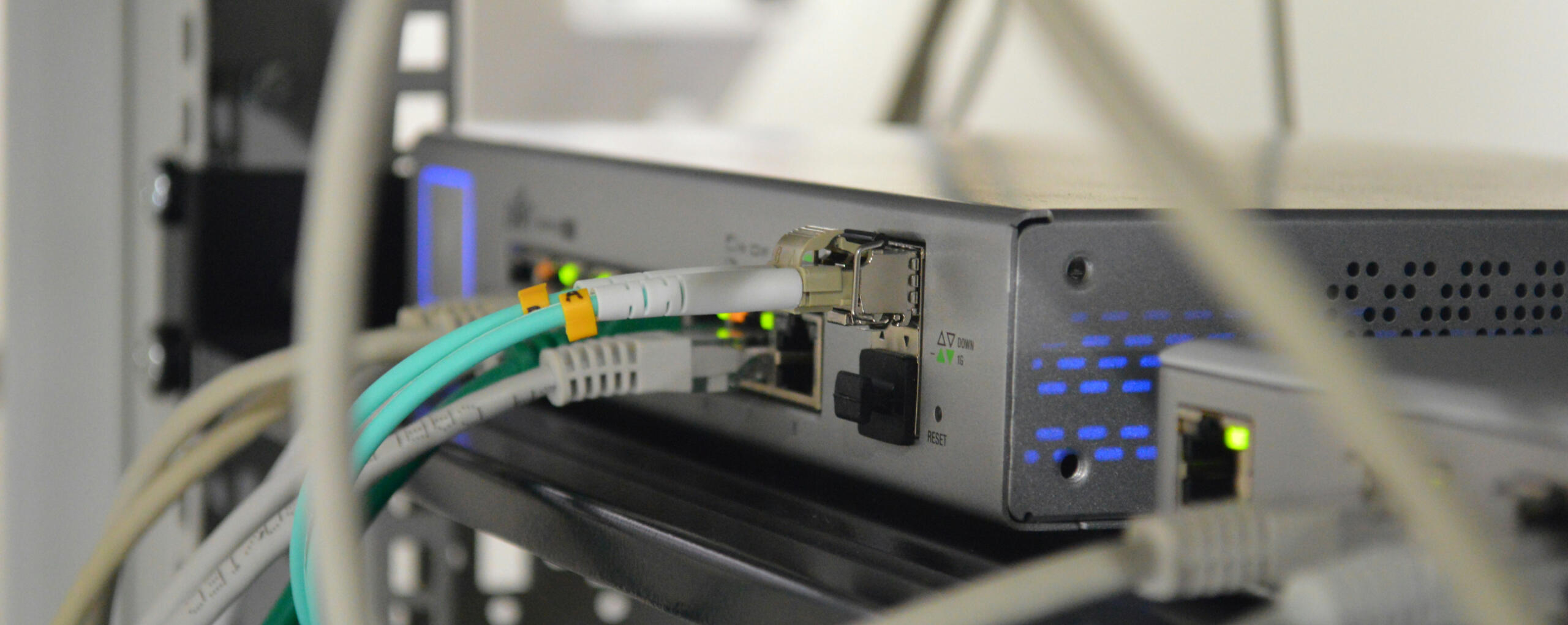Associate Professor & Chair
Department of Computer Science
St. Bonaventure University

Walsh Science, 113
3261 West State Road
St. Bonaventure, NY 14778
Dr. Chris Bopp adopts a human-centered approach to develop data systems that have a positive impact on the world.Dr. Bopp is an Associate Professor and Department Chair at St. Bonaventure University. He teaches in the Computer Science and Data Science programs, and is the founding director of the Data Science program.Dr. Bopp earned his Ph.D. in Technology, Media & Society from the University of Colorado Boulder, and his B.S. in Information Technology from Rochester Institute of Technology. Dr. Bopp also worked as an infrastructure and security engineer for eight years before becoming a professor.
Associate Professor & Chair
Department of Computer Science
St. Bonaventure University

Walsh Science, 113
3261 West State Road
St. Bonaventure, NY 14778
Dr. Bopp teaches courses in the Computer Science and Data Science programs, as well as courses that cross disciplines.He extensively uses specifications grading in his courses due to its ability to more closely mirror workplace norms after graduation, and its ability to shift courses towards a focus on quality.In addition to the following courses (or course sequences) that Dr. Bopp teaches regularly, he also oversees Computer Science student internships.

User-Centered Design & Development
This is a two-semester capstone course sequence that gives students the experience of deeply engaging with people in the world (users of technology systems) to understand their needs in order to imagine, prototype, and collaboratively build an application that enriches their lives in a meaningful way.Design Focus
Students engage with a local nonprofit or a campus community to address a real need for real users. Recently, students have built applications for course scheduling and attendance tracking. If you have an idea for a possible project, please email Dr. Bopp!Core Concepts
Using a flipped-classroom approach, students learn about and apply an iterative human-centered development process in small groups. Students get hands-on experience with current application frameworks, architectures and development tools (e.g., version control).

Computer Networking
This course aims to get students familiar with the basic technologies that enable two computers to communicate with one another. One of the main reasons this class is always so enjoyable is that it reveals the secrets behind many of the things that we all do every day like browse a website or send an email.Protocol Focus
Beyond the basics, the other learning goals for this course center around learning the details of a variety of protocols that are used for those everyday tasks. For example, one protocol covered extensively is the Hyper Text Transfer Protocol (HTTP) which is used for accessing websites.Hands-On Experience
In this course, students put their theoretical understanding of protocols into practice by configuring both physical and virtual Cisco network equipment, including switches and routers.

Python Programming
This course aims for a basic level of proficiency with the Python programming language – an extremely popular and powerful language used for many application domains.Core Programming Concepts
This course also aims to get students to "think like a Computer Scientist" and therefore leave the class with a solid understanding of the basic concepts that will remain true in future languages that haven't even been invented yet.Ethics Focus
This course assigns several lab exercises that require students to engage with the ethics of their code. For example, one lab assignment requires that they develop software for determining which students are admitted into college. These assignments are based on those provided by the Internet Rules Lab and Ethical CS.Design Rationale
This approach is important because ethics classes are often taught as a separate course from technical content. Instead, this course demonstrates to students that they must make ethical decisions all the time, even for things as simple as a conditional statement.
Associate Professor & Chair
Department of Computer Science
St. Bonaventure University

Walsh Science, 113
3261 West State Road
St. Bonaventure, NY 14778
Dr. Bopp's research explores the ways that people and organizations make difficult decisions, with or without data.When making decisions that are complex and impact other people, it is often difficult to quantify all the dimensions of a decision. His research explores this intersection of data and socially impactful decisions.

Nonprofit Organizations' Data Systems
Dr. Bopp has examined the level to which nonprofit stakeholders' voices are heard in the design of information systems, and the factors that influence the capacity to represent individuals and their social contexts in nonprofit data systems.For an introduction to this body of work, the 2017 Conference on Human-Computer Interaction paper titled Disempowered by Data is the best starting point.

Individual Data-Driven Decision-Making
Dr. Bopp's current research takes a broader focus beyond nonprofit organizations to more contexts in which individuals and groups conduct data-driven decision making within and about socially important contexts.Most significantly, Dr. Bopp is particularly interested in how individuals use (or do not use) data to make decisions and take action (e.g., vote) on social issues in their communities. He is especially interested in the information resources that college students consult to learn about and engage in the world around them.

Collaborators
If you're a student and would like to get experience with research of this type/topic, please email Dr. Bopp. He is always looking for student collaborators.If you're a researcher or organization interested in collaborating, please also reach out via email!

Publications
A complete list of Dr. Bopp's publications are below. Where possible, links provide access to free copies. For others, please email Dr. Bopp.
2024
Bopp, C., Foerst, A. & Kellogg, B. The Case for LLM Workshops: The Responsible Use of Large Language Models by Faculty at Small Liberal Arts Universities. ACM Conference on Computer Science Education. 33% Acceptance Rate.
2023
Bopp, C. & Voida, A. "Showing the Context": A Need for Oligopticonic Information Systems in Homelessness Measurement. PACM-HCI (Computer Supported Cooperative Work).
2020
Bopp, C. & Voida, A. Voices of the Social Sector: A Systematic Review of Stakeholder Voice in HCI Research with Nonprofit Organizations. Transactions on Computer-Human Interaction.
Bopp, C. Doing "Good" with Scientific Data? Understanding and Working Around Data Doubles in Human Services Organizations. Doctoral Dissertation.
2019
Bopp, C., Benjamin, L. & Voida, A. The Coerciveness of the Primary Key: Infrastructure Problems in Human Services Work. PACM-HCI (Computer Supported Cooperative Work). Recognized for a Contribution to Diversity and Inclusion.
Bopp, C. Doing "Good" with Data? Understanding and Working Around Data Doubles in Human Services Organizations. Computer Supported Cooperative Work Companion.
2018
Benjamin, L., Voida, A. & Bopp, C. Policy Fields, Data Systems and the Performance of Nonprofit Human Service Organizations. Human Service Organizations.
Strohmayer, A., Marshall, M., Verma, N., Bopp, C., McNaney, R., Voida, A., Kirk, D. & Bidwell, N. Untold Stories: Working with Third Sector Organisations. ACM Conference on Human Factors in Computing Systems (Extended Abstracts).
2017
Bopp, C., Harmon, E. & Voida, A. Disempowered by Data: Nonprofits, Social Enterprises, and the Consequences of Data-Driven Work. ACM Conference on Human Factors in Computing Systems. 25% Acceptance Rate.
Harmon, E., Bopp, C. & Voida, A. The Design Fictions of Philanthropic IT: Stuck Between an Imperfect Present and an Impossible Future. ACM Conference on Human Factors in Computing Systems. 25% Acceptance Rate.
Porter, E., Bopp, C., Gerber, E. & Voida, A. Reappropriating Hackathons: The Production Work of the CHI4Good Day of Service. ACM Conference on Human Factors in Computing Systems. 25% Acceptance Rate.
Bica, M., Palen, L. & Bopp, C. Visual Representations of Disaster. ACM Conference on Computer Supported Cooperative Work and Social Computing. 35% Acceptance Rate.